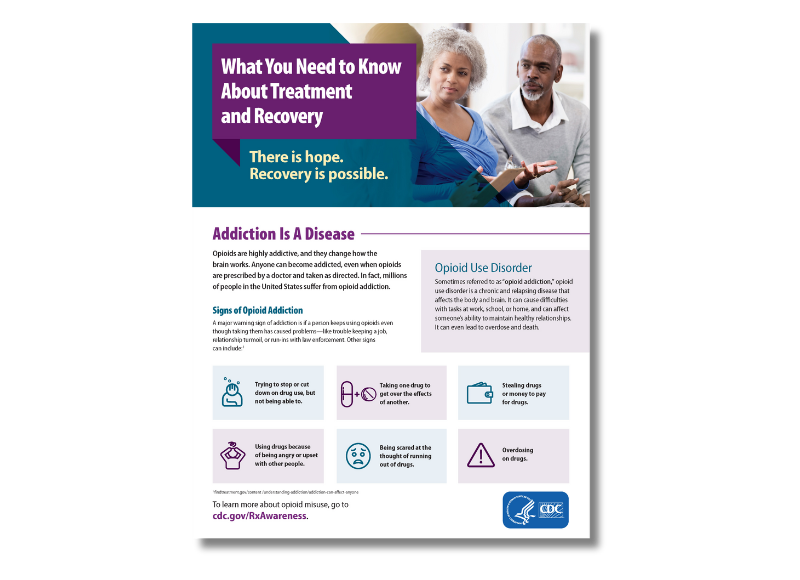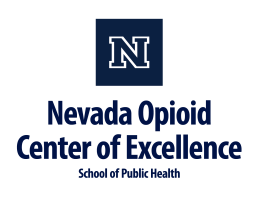
SAMHSA’s working definition of recovery defines recovery as a process of change through which individuals improve their health and wellness, live self-directed lives, and strive to reach their full potential. Recovery signals a dramatic shift in the expectation for positive outcomes for individuals who experience mental and substance use conditions or the co-occurring of the two.
Guiding Principles
Hope, the belief that these challenges and conditions can be overcome, is the foundation of recovery. A person’s recovery is built on his or her strengths, talents, coping abilities, resources, and inherent values. It is holistic, addresses the whole person and their community, and is supported by peers, friends, and family members.
The process of recovery is highly personal and occurs via many pathways. It may include clinical treatment, medications, faith-based approaches, peer support, family support, self-care, and other approaches. Recovery is characterized by continual growth and improvement in one’s health and wellness and managing setbacks. Because setbacks are a natural part of life, resilience becomes a key component of recovery.
The Four Major Dimensions of Recovery
Health
Home
Purpose
Community
Recovery Resources
Websites
SAMHSA Program to Advance Recovery Knowledge (SPARK)
Nevada Recovery Friendly Workplace
Faces & Voices of Recovery
SMART Recovery
Tools & Resources
Start Your Recovery Nevada Treatment Locator
SPARK Resource Center
Recovery Friendly Workplace Toolkit
National Recovery Month
Medication for Opioid Use Disorder (MOUD) Toolkit for Peer Recovery Specialists
Posters & Infographics
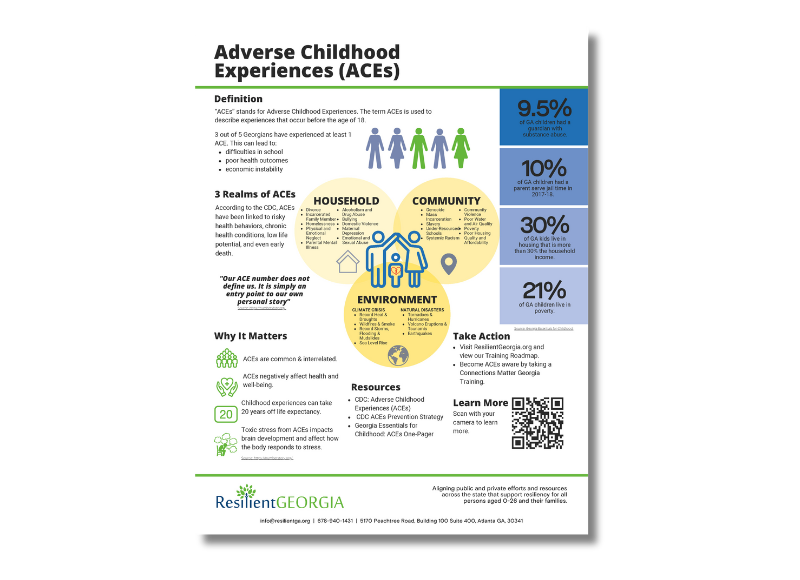
ACEs, Resilience, Toxic Stress Concept Cards
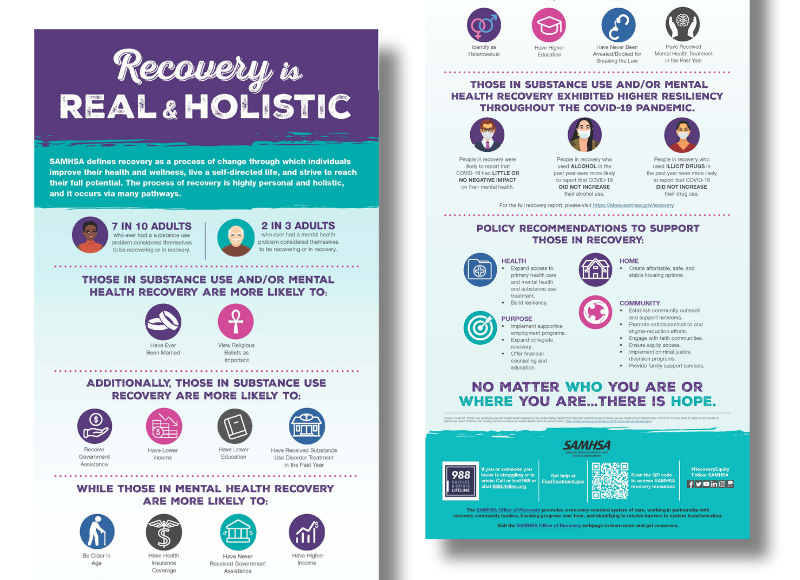
Infographic: Recovery is Real and Holistic
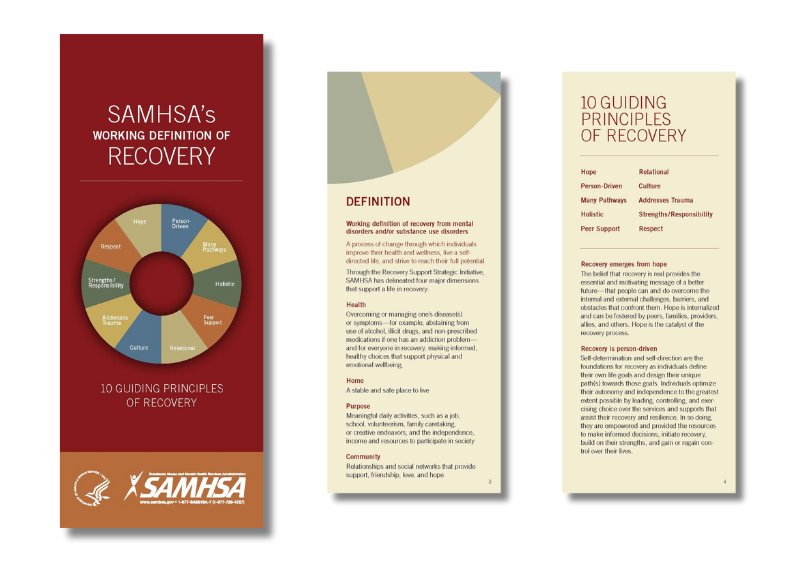
SAMHSA’s Working Definition of Recovery
